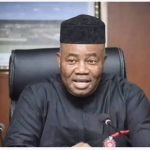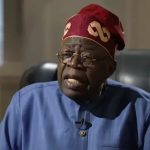With less than six months left to the expiration of President Muhammadu Buhari’s eight-year administration, available data show that government has left more Nigerians poorer and unemployed than it met in 2015, despite coming to power, partly on the promise to create 24 million jobs.
President Buhari and Vice President Yemi Osinbajo, had, in 2015, made campaign promises committing to creating three million jobs, yearly if elected into office, to tackle the high rate of unemployment in the country and lift the masses out of poverty.
But a recent report by Jobberman, in collaboration with Young Africa Works and Mastercard Foundation, shows that the number of unemployed individuals in the country has hit 23 million.
ALSO READ: Presidential Fleet Racks up N64.15b Despite Buhari’s Pledge to Cut Cost
As election campaigns heighten, there are concerns by stakeholders and the electorate that the narrative and promises by presidential candidates remain the same, even as unfolding challenges portend dire times for Nigerians.
Though COVID-19 pandemic pushed many economies to the brink, leading to huge job losses and recession, Nigeria’s lingering challenges of insecurity, currency devaluation, poor accessibility to foreign exchange by the productive sector, high inflation, difficult operating environment, among others, compounded the country’s woes and outlook.
In fact, a major component of the President’s promise in 2015 was to tackle high unemployment rate. However, reality appears to be far from expectations going by the last unemployment data and poverty levels in the country, in addition to the current wave of brain drain, codenamed Japa, experienced across many sectors.
In his 2015 inauguration speech, the President said: “Unemployment, notably youth unemployment, features strongly in our party’s manifesto. We intend to attack the problem frontally through the revival of agriculture, solid minerals, and mining as well as credits to small and medium-size businesses to kick-start these enterprises. We shall quickly examine the best way to revive major industries and accelerate the revival and development of our railways, roads and general infrastructure.”
Despite these commitments, major industrial firms are barely surviving to maintain decent production.
The Guardian can confirm that the unemployment rate in the country has seriously worsened when compared to when President Buhari assumed office on May 29, 2015.
The rate of unemployment than in the second quarter (Q2) 2015, as released by the National Bureau of Statistics (NBS) was 14.9 per cent, with the country’s unemployed persons put at about 6.1 million people.
Seven years later, the unemployment rate stands at 33.3 per cent. This followed the fourth quarter (Q4) report of year 2020 when the rate was last released by NBS, where about 23.18 Nigerians were jobless.
Since Q4,2020, no unemployment data has been released by NBS, a situation that has created an imbalance in the rating system, because the norm is for the bureau to release the report on a quarterly basis.
NBS, while releasing other sectoral data on schedule quarterly, has been silent on the release of the unemployment data.
In Jobberman’s report titled: ‘Unmasking the Barriers to Women’s Participation in Nigeria’s Labour Market,’ the firm stated that Nigeria’s active population was 122 million out of a total population of over 200 million.
The report further showed that 62 million of the active population are women and 60 million are men. The total number of individuals in the labour force was fixed at 70 million; 30 million women and 40 million men.
According to NBS, the labour force population covers all persons aged 15 to 64 who are willing and able to work regardless of whether or not they have a job. The employed population was fixed at 46 million; 20 million for women and 26 million for men. Individuals in informal employment were fixed at 43 million, with 18 million being women and 25 million, men.








